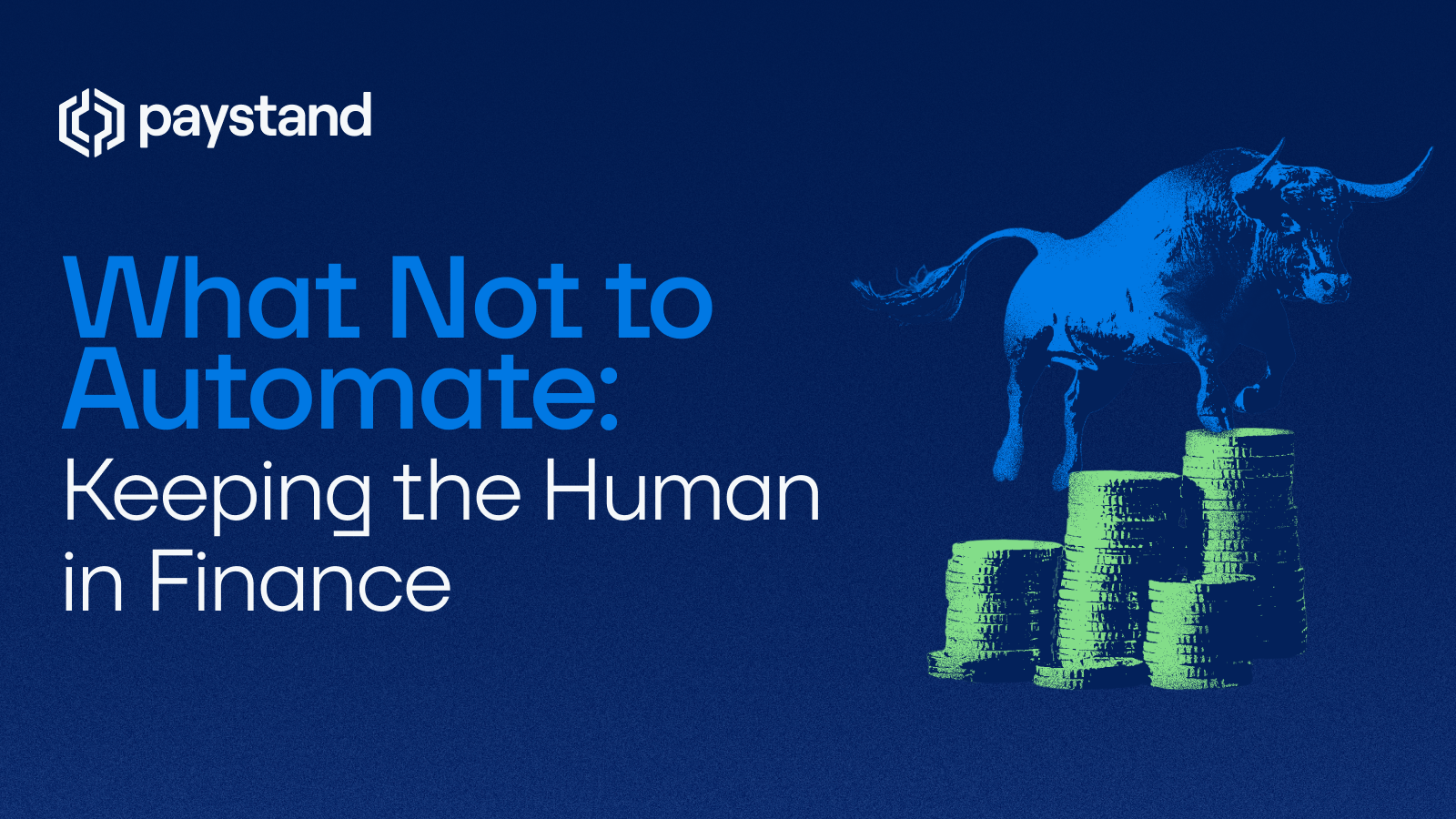What Not to Automate: Keeping the Human in Finance

Table of Contents
- What Roles in Finance/Banking Will Never Be Replaced by a Robot?
- Finance and AI
- How AI Is Replacing Humans in the Finance Sector
- Why “What Not to Automate: Keeping the Human in Finance” Matters
- Striking the Balance: AI + Human
Key Takeaways
- Not everything should be automated. While AI technology excels at repetitive, rules-based processes, humans are essential for strategy, ethics, and empathy.
- Finance professionals must embrace AI as a partner. The right balance frees humans from routine work and empowers them to focus on decision making processes and innovation.
- Customer service and trust remain human-led. No AI-powered system can replicate the rapport and judgment built in long-term financial relationships.
- AI in finance enhances, not replaces. Use automation for data in real time, fraud detection, and compliance tasks—while relying on people for oversight and adaptability.
- The future is human + AI. By leveraging AI where it adds the most value, organizations can unlock efficiency while keeping people at the heart of finance.
The AI revolution is in full swing. On Nvidia’s recent post-earnings call, CEO Jensen Huang highlighted that global investment in AI infrastructure has already doubled to $600 billion per year and could reach $3 to 4 trillion by the end of the decade. The message is clear: the race to build and deploy AI-powered systems is only accelerating, with finance among the sectors most deeply affected.
But while the potential of AI is immense—automating repetitive tasks such as data entry, improving fraud detection, and processing financial data in real time—not every role or responsibility in finance should be handed over to machines. In a field built on trust, judgment, and strategy, the question isn’t just what can we automate? It’s also what not to automate?
1. What Roles in Finance/Banking Will Never Be Replaced by a Robot?
While artificial intelligence (AI) has transformed many areas—AI-powered systems can now handle repetitive tasks such as data entry, analyze financial data in real time, and assist with fraud detection—there are finance roles where the human touch remains irreplaceable. These include:
-
Client Relationship Managers & Trust Advisors
Human empathy, active listening, and nuanced judgment: robots can’t replicate the trust and rapport built over years. Customer service in finance thrives on emotional intelligence.
-
Strategic Financial Planners & Behavioral Coaches
AI assists with datasets but can’t fully grasp a client’s emotions, risk tolerance, or life goals.
-
Ethical Oversight & Compliance Decision-Makers
Complex regulatory judgments often require interpretation beyond what automated rules can cover, especially when exceptions or moral gray areas emerge.
-
Crisis Managers & Communication Leads
In a flash crash, cyberattack, or unexpected geopolitical shift, stakeholders turn to humans for reassurance, transparency, and leadership.
These roles underscore that while AI enables powerful efficiencies, certain human-centered capabilities—from empathy to ethical nuance—can't be replaced.
2. Finance and AI
The potential of AI in finance is vast. AI technology helps finance professionals leverage AI to:
- Automate repetitive tasks such as data entry, freeing humans for higher-level work.
- Ingest and react to financial data in real time, improving responsiveness.
- Enhance fraud detection through pattern recognition and anomaly spotting.
- Accelerate decision cycles, optimizing workflows across departments.
Still, it’s essential to embrace AI as a collaborator, not a substitute. AI tools should augment—not sideline—the learning, insight, and trust that only humans bring.
3. How AI Is Replacing Humans in the Finance Sector
AI is reshaping finance, especially in roles that involve:
- Transactional duties like reconciling payments, processing bulk invoices, or running repetitive data aggregation.
- Routine compliance checks where predefined patterns can be codified and monitored automatically.
- Initial screening: AI-powered chatbots or virtual assistants handle FAQs or simple customer service queries, improving response times.
But we must be mindful: as these tasks are AI-powered, finance professionals must stay vigilant. Relying entirely on automation for things like fraud detection without oversight can expose organizations to risk. AI's strength is in scale and speed—but without human governance in decision-making processes, it may miss nuanced red flags or misinterpret context.
4. Why “What Not to Automate: Keeping the Human in Finance” Matters
-
Preserving Trust & Rapport
Financial relationships are built on nuanced, long-term engagement. No algorithm can replace the emotional intelligence of a seasoned advisor.
-
Ensuring Ethical & Strategic Oversight
Artificial intelligence (AI) excels in pattern recognition but sometimes overlooks moral or exceptional circumstances. Only humans can balance efficiency with ethics.
-
Maintaining Adaptability
AI works best where data behaves predictably. For novel challenges—market shocks, client crises, regulatory shifts—humans adapt, recalibrate, and lead.
-
Leveraging the Synergy
AI enables finance professionals to elevate their impact—from routine compliance tasks to high-value insight generation. The goal isn’t to replace, but to augment.
5. Striking the Balance: AI + Human
- Use AI for repetitive tasks such as data entry and real-time data monitoring.
- Empower humans to focus on decision-making processes, emotional intelligence, personalized strategy, and innovation.
- Continuously train finance teams to leverage AI, interpret outputs, and act ethically.
In a world where “embrace AI” is the mantra, it’s vital to remember that AI in finance should be an enhancer—not a replacer. The potential of AI lies in its ability to free up humans from routine work so they can lead with judgment, empathy, and strategic vision.
What Not to Automate: Keeping the Human in Finance serves as a guiding principle—ensuring that as we advance technologically, we don’t forfeit the uniquely human core of the finance profession.
To explore how AI technology and blockchain are powering the future of finance, including best practices to balance automation and human insight, check out this in-depth eBook:







%20(1)%20(1).jpg?width=100&height=100&name=IMG_3752%20(1)%20(1)%20(1).jpg)